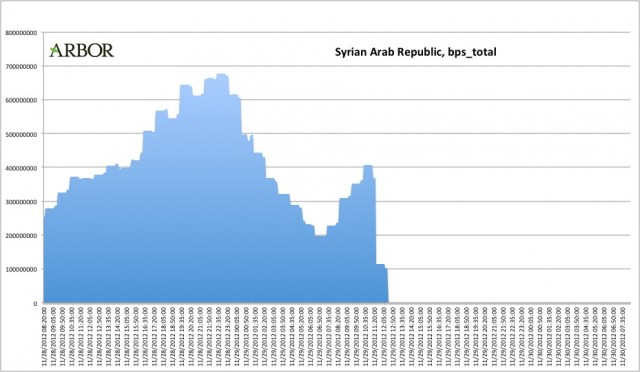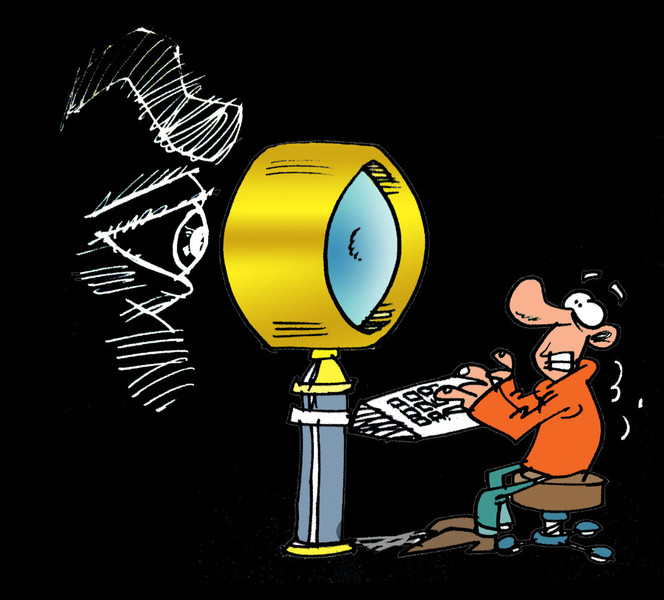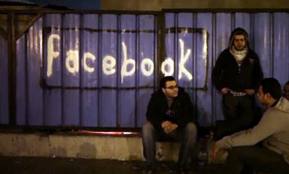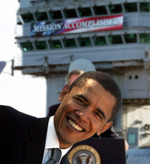Syria Feature: How the Assad Regime Shut Down the Internet (Gallagher)

Arbpr Networks graphic of Syria's cutoff from the Internet on Thursday
Just after noon Damascus time on Thursday, the government-owned Syrian Telecommunications Establishment essentially deleted the whole country from the Internet's routing tables, blocking all inbound and outbound network traffic. Rather than the result of terrorist attacks, as the government claimed on state television, the blackout was a well-rehearsed and deliberate act intended to deny connection to Syria's citizens and the opposition forces currently trying to topple the regime of President Bashar Al-Assad.

 Sunday, December 2, 2012 at 10:45
Sunday, December 2, 2012 at 10:45






